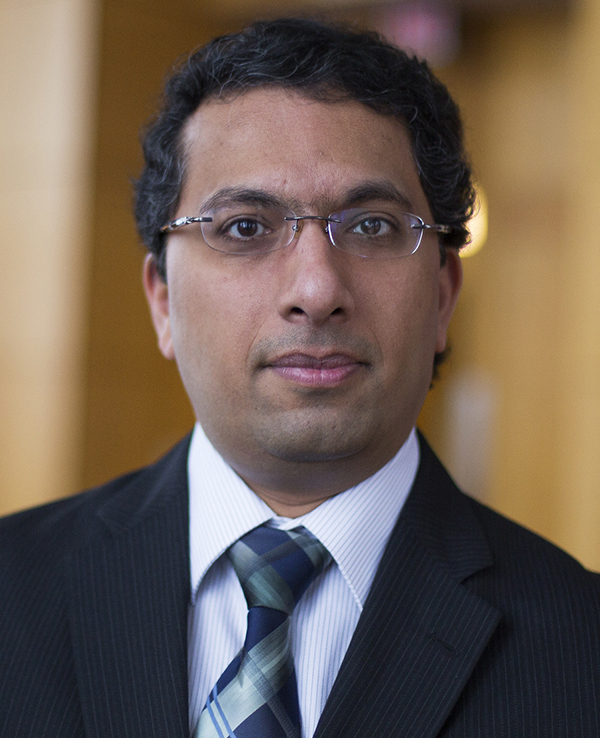Prof. Sandeep Pradhan named IEEE Fellow for contributions to information theory
Prof. Pradhan has made fundamental contributions to distributed compression and structured coding

 Enlarge
Enlarge
Prof. Pradhan was elevated to IEEE Fellow, class of 2021, for “for contributions to coding for distributed compression and structured coding.”
Pradhan’s research interests have centered primarily in the area of network information theory. In the last several years, his research has expanded into the areas of quantum information theory and quantum field theory.
Among his key accomplishments is a groundbreaking structured coding framework for network information theory that resulted in the first significant performance gains for general distributed source coding and broadcast channel coding since the 1970’s. His work is unique in being applicable to a broad set of problems, including non-additive and non-symmetric sources and channels.
Pradhan also developed the first practical distributed data compression algorithm with performance approaching the information-theoretic limit. Called distributed source coding using syndromes (DISCUS), this work is important for communication among sensor networks, where each sensor must efficiently encode its data, highly correlated with data at neighboring sensors, without knowledge of the neighboring data. Other applications for his compression algorithm include distributed video coding. This research has spawned an entire subfield of compression.
In more recent research, Pradhan is collaborating with researchers at the University of Cambridge to develop a new “law of small numbers” that could help power the distributed information processing required for future networks of robots, autonomous cars, sensors, and data centers. The approach confounds the traditional approach of simply gathering as much information as possible, ie, large numbers, in order to achieve the best results.
One application for the law of small numbers is distributed learning, where a network needs to learn something based only on data that is local to its nodes. Here, image sensors should be able to avoid using large samples of data in their distributed processing, yet still get efficient and accurate results. Pradhan believes the new law will have a major impact on the next generation of information processing networks.
Pradhan has taught 11 courses, three of which he developed from scratch, and a fourth modified from an existing course. In recognition of his dedication to educating students, he received the Education Excellence Award from the U-M College of Engineering. Nearly half of the PhD students he has graduated have entered academia.
In addition to serving on numerous technical program committees, he co-chaired the 3rd International Workshop on Information Theory for Sensor Networks, and the Shannon Centennial Symposium held at the University of Michigan.
Pradhan received his doctoral degree in Electrical Engineering from the University of California, Berkeley in 2001. Following a postdoctoral researcher position at the same institution, he joined the University of Michigan in 2002. He is the recipient of an NSF CAREER award.